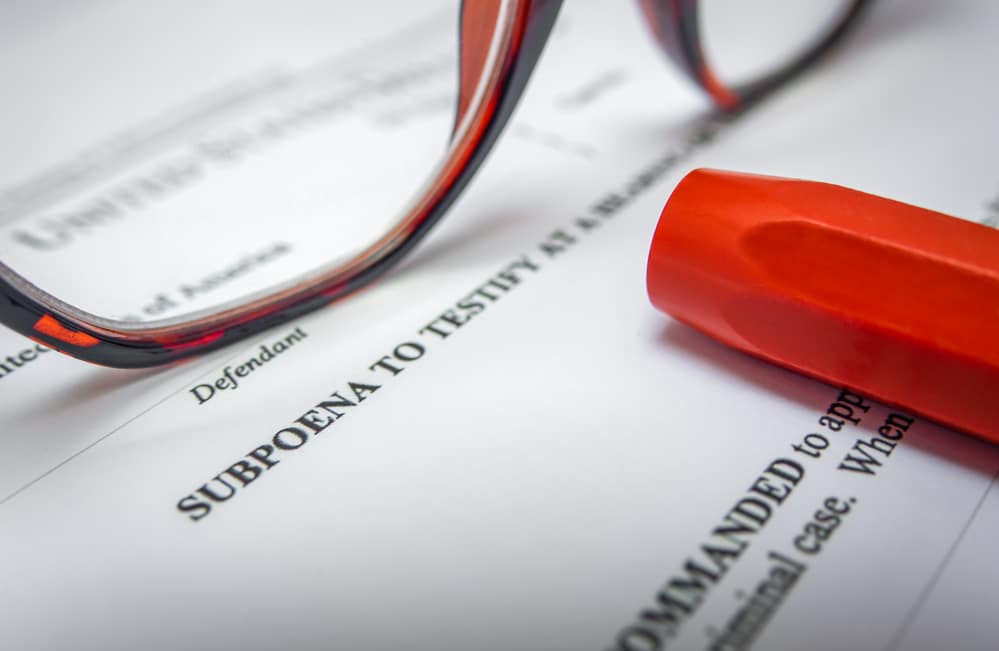Domesticating Criminal Foreign Subpoenas: Our Expert Advice

Dealing with legal matters across state lines can be complex, especially when it comes to domesticating criminal foreign subpoenas. This process ensures that a witness from one state can be legally compelled to testify in another. Here’s a comprehensive guide to navigating this procedure.
1. Certification of a Material Witness: Begin by securing a Certification of a Material Witness signed by the original court judge. This document is crucial as some states require it to process the subpoena.
2. Understand Jurisdiction Requirements: Each jurisdiction has its own rules and procedures for handling criminal subpoenas. Some courts provide a specific form for a Criminal Subpoena, while others require you to request it in a cover letter. Research and understand the requirements of the specific jurisdiction you are dealing with.
3. Prepare Necessary Documents: You will need to prepare a Notice and Order to Appear along with a Proposed Order. The Notice and Order to Appear is served on the witness, informing them of their obligation to attend a hearing. The Proposed Order, which will be signed by the judge during the hearing, formally compels the witness to testify out-of-state. Check the court’s hearing schedule to include the correct date in your Notice and Order to Appear.
4. File with the Court Clerk: Submit all your documents to the court clerk. Once your case is assigned a number, you can serve the witness with both the Notice and Order to Appear and the subpoena.
5. Witness Court Appearance: The witness must appear before a judge in their local jurisdiction. During this hearing, the judge will ensure the witness understands the legal obligation to testify in another state and the consequences of non-compliance, such as being held in contempt of court. The judge may also discuss compensation for the witness’s time and expenses.
6. Judge’s Proposed Order: After the hearing, the judge will sign the Proposed Order, officially requiring the witness to testify in the out-of-state case. This signed order is essential for enforcing the subpoena.
7. Verify Specific Court Procedures: Different courts have varying procedures. Some courts issue the subpoena directly, while others might refer you to the Attorney General’s office in that state, who will then handle the filing of the subpoena.
8. Allow Sufficient Time: The entire process can take approximately six weeks, so plan accordingly to ensure timely compliance with all legal requirements.
When You Need Expert Assistance Internationally
Domesticating criminal foreign subpoenas requires careful attention to detail and a thorough understanding of different jurisdictions’ requirements. Navigating the intricacies of necessary steps can be daunting. Torri’s Legal Services offers expert assistance in managing this process efficiently. With our extensive experience, we ensure all procedural requirements are met, saving you time and ensuring compliance with jurisdictional mandates. Trust Torri’s Legal Services to handle your subpoena needs professionally and effectively, giving you peace of mind and allowing you to focus on other critical aspects of your case. Call Torri’s Legal Services and let us streamline the process for you!
